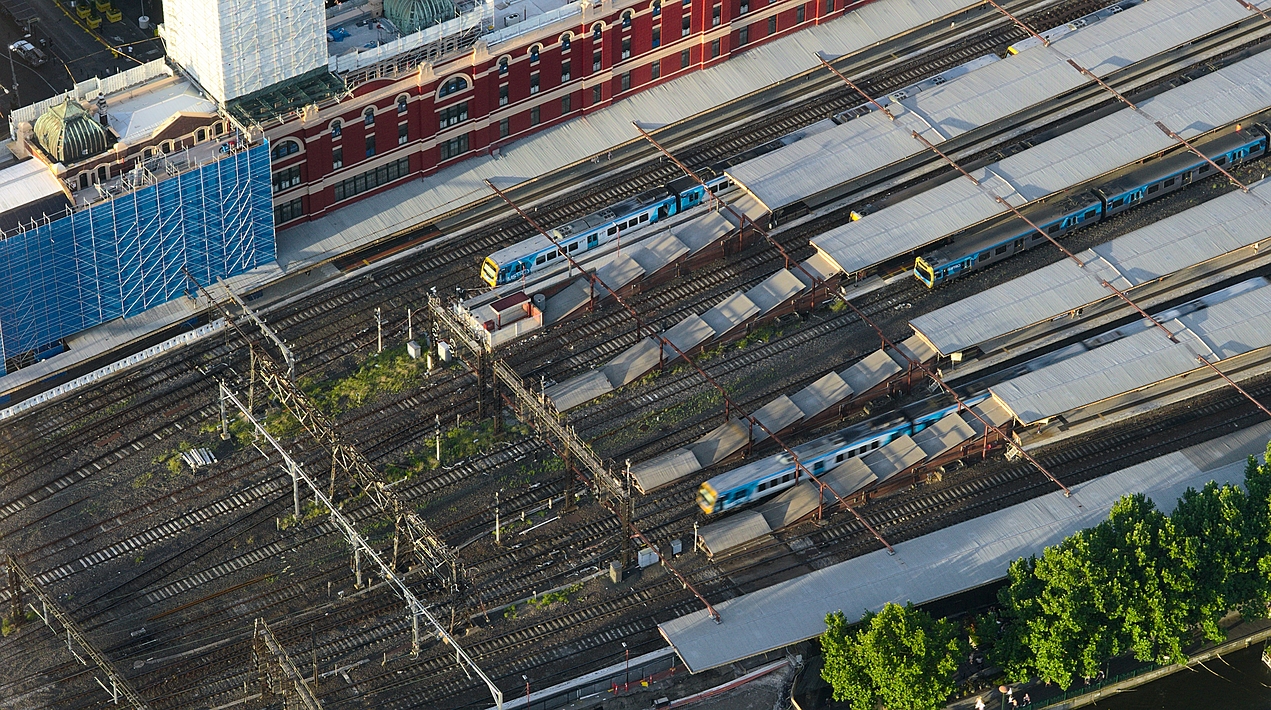
The University of Queensland has teamed up with Australia’s largest rail freight operator on a research project to help reduce the carbon emissions of the company’s locomotive fleet. The project will investigate how new-generation battery and green hydrogen fuel-cell technology could be used to replace the current diesel-powered engines and power the rail network.
Locomotive mechanics expert Professor Paul Meehan from the School of Mechanical and Mining Engineering said the research would help outline a transition plan for the rollout of the emerging technologies and gauge the impacts on heavy transportation industries. Together with the company, this project will advance knowledge and understanding of battery and hydrogen technology, specifically the application of these technologies in the Australian heavy haul rail industry, Professor Meehan said. It is a unique opportunity to design new and future solutions to decarbonise a major transportation industry and reduce the impact of climate change.
The research would examine Australia’s 33,000-kilometre rail network to assess the energy and power requirements for specific rail corridors where the rail freight operator operates, identify the technology that would help meet those requirements, and analyse how the technology could be implemented.
UQ’s Dr Ruth Knibbe, an energy generation and storage expert, said the project would also examine how battery and fuel cell technology needs to be developed into the future to meet the need of heavy industrial vehicles. In addition to mapping, the specific requirements for large industries, the complex and large-scale ‘refuelling’ infrastructure will be assessed for both battery charging and hydrogen refuelling and storage.
The Head of Asset Management and Strategy at the rail freight operator the research was an important foundation for delivering on decarbonisation targets. The company is working to define the specific energy requirements for mainline operation of their trains, and how the emerging technologies in batteries and hydrogen fuel cells can deliver that in practical terms.
This collaboration will allow UQ to further develop their extensive knowledge in the battery-hydrogen space, while also providing the company with key information required to help support the goals established in our 2020 Climate Strategy and Action Plan.
The UQ study was one of several key initiatives being pursued by Aurizon to decarbonise its operations and supply chains. Recently, the company and Anglo American announced a feasibility study to explore the application of hydrogen fuel cell and battery hybrid power units in heavy haul freight rail operations. Results from UQ’s first project are expected in 12 months.
The global smart railway market was valued at $18.3 billion in 2019 and is projected to reach $38.4 billion by 2027, registering a CAGR of 12.8%. The smart railway is a technologically advanced approach to efficiently manage railway operations through sharing rail data across rail infrastructure components, such as passengers, control centres, ticketing departments, and freight.
Smart Railway are the integration of the latest technologies, including Internet of Things (IoT), big data, cloud, analytics, artificial intelligence (AI), a global positioning system (GPS), and machine learning (ML) to make rail operations more efficient and accurate.
The growth of the global smart railway market growth is driven by the penetration of digital infrastructure and the requirement for automated & autonomous rail operations. The majority of railways are operated through government authorities where procurement and installation of such smart technologies are done through contracts and agreements. Winning these contracts or agreements is the key strategy adopted by the market participants in the smart railway market.
















